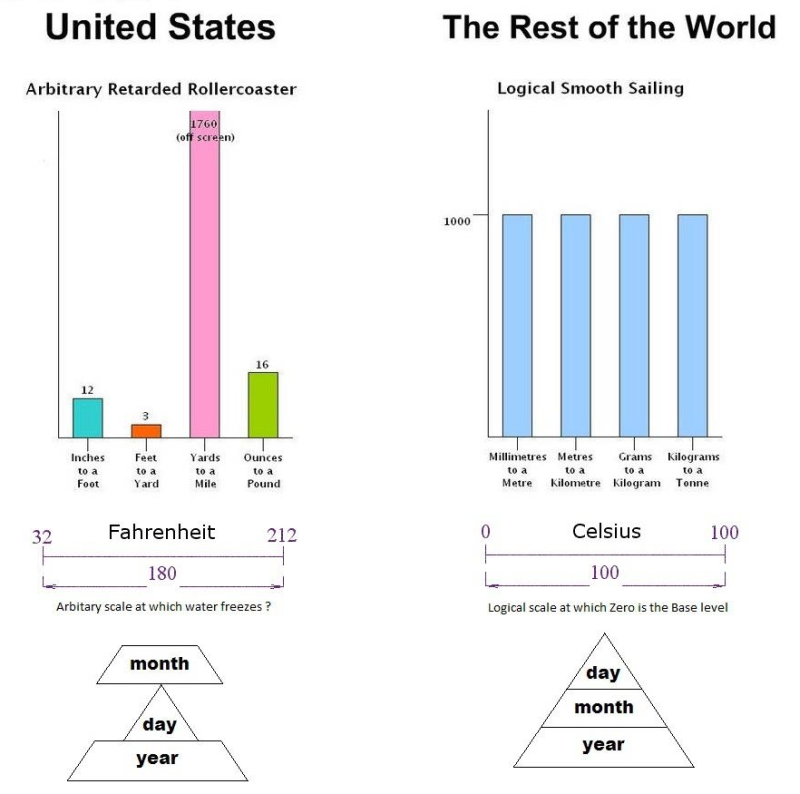this post was submitted on 30 Jun 2023
2 points (75.0% liked)
Standardization
452 readers
1 users here now
Professionals have standards! Community for all proponents, defenders and junkies of the Metric (International) system, the ISO standards (including ISO 8601) and other ways of standardization or regulation!
founded 1 year ago
MODERATORS
you are viewing a single comment's thread
view the rest of the comments
view the rest of the comments

The choice of water's melting and boiling point as two points in the Celsius scale is arbitrary, too. Why not choose the melting and boiling point of something like Cesium? It would have been more fun because who doesn't like Cesium? And it could still use °C. Humans can live in a comfortable 3 degree range in this new system. All of the other units which include temperature can be reconfigured to use this system just as easily as Celsius. We can massage everything so the Joule, etc. is based on 1°C (Cesium, not Celsius!)
I'm not defending the Imperial system. I'm just pointing out the Celsius system is based on arbitrary choices, too.
100°C as the boiling point is hugely useful for things like cooking and hot beverages. The freezing point is useful for road conditions and farming.
Fahrenheit's arbitrariness feels a lot more arbitrary.
How is memorizing 100 any easier than memorizing 212? It's the same brain space. When you're born into the system, it just makes sense. Same with 32 for freezing. Remembering any two arbitrary numbers is really, really easy.
Personally, I'd rather have been raised on metric, but I'm telling you... the Fahrenheit system is no harder than Celsius.
Now fractional inches... Ugh. I do woodworking and I'd much, much rather work in mm, but "every" tool in the US and nearly every enthusiast-level technical drawing is in inches. That and all of my decades of experience is in inches, so I can easily reason about the numbers, and estimate sizes. At least in machining we use decimal inches and not fractions.
Round numbers are easier to remember.
Not only round numbers, but 0 and 100!
0 is obviously a very distinct number.
We use 100 for percentages, money, and all sorts of things.
As someone who wasn't raised in the imperial system, I always have to try to remember if it's 32 or 34. I doubt anyone who hears about the metric system is wondering whether it's 0 or something else like 2 or 10 or whatever.